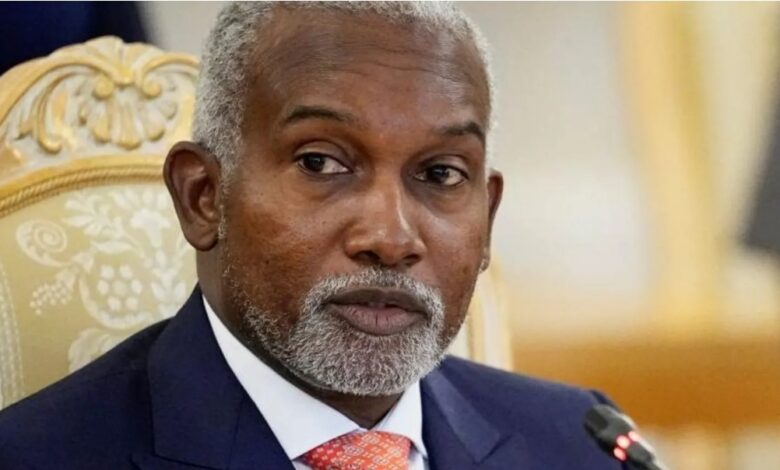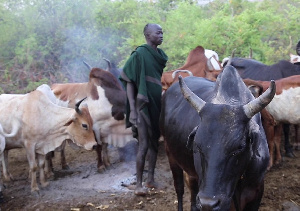Nigeria has ‘enough problems’ and can’t take deportees from US – Foreign Minister

Nigeria will not bow to pressure from the Trump administration to accept Venezuelan deportees or third-country prisoners from the US, foreign minister Yusuf Tuggar has vowed, quoting 1990s American rappers Public Enemy to make his point.
“In the words of the famous US rap group Public Enemy… You’ll remember a line from Flava Flav – a member of the group – who said: ‘Flava Flav has problems of his own. I can’t do nothin’ for you, man’, ” he said in an interview with privately owned Channels TV.
“We already have over 230 million people,” the minister said.
His comments follow threats from Washington to restrict visas and hike tariff on countries who do not comply with its deportation policy.
“It will be unfair for Nigeria to accept 300 Venezuelan deportees,” he said, suggesting that the recent visa curbs on Nigerian travellers by the US was not “reciprocal” but a pressure tactic.
“You will be the same person that will castigate us if we acquiesce to accepting Venezuelan prisoners into Nigeria,” he added.
Earlier this week, the US Department of State said as part of a “global reciprocity realignment”, nearly all non-immigrant and non-diplomatic visas issued to citizens of Nigeria, as well as those of Cameroon and Ethiopia, would now be single-entry and valid for only three months.
Meanwhile, President Donald Trump has threatened to hit countries which side with the policies of the Brics alliance that go against US interests with an extra 10% tariff. The Brics grouping of 11 nations is designed to challenge the political and economic power of the West.
Last year, the list of Brics members expanded beyond the original group of Brazil, Russia, India, China and South Africa to include Egypt, Ethiopia, Indonesia, Iran, Saudi Arabia and the United Arab Emirates. Nigeria is not a full Brics member but became its ninth partner country back in January.
On Friday, the US embassy in Abuja denied that the Trump administration was engaging in tit-for-tat clampdowns on visas as punishment for Nigeria not giving in to their demands. The real reason for the visa restrictions, it said, were “technical and security benchmarks” that had to be respected.
Mr Tuggar said the threat of tariff hikes did not “necessarily have to do with us participating in Brics.
“You have to also bear in mind that the US is mounting considerable pressure on African countries to accept Venezuelans to be deported from the US, some straight out of prison,” he added.
“It will be difficult for a country like Nigeria to accept Venezuelans prisoners into Nigeria. We have enough problems of our own, we cannot accept Venezuelan deportees to Nigeria, for crying out loud,” he concluded.
 Los Angeles Times via Getty Image
Los Angeles Times via Getty ImageInstead, he said Nigeria was looking “to do deals with the US” because the country has a lot of gas, critical minerals and rare earths needed by American tech companies.
When further asked what Nigeria was doing to reach a diplomatic solution, the minister said the country was discussing with the US and resolving differences.
Mr Tuggar’s claim comes after the Wall Street Journal quoted internal documents and sources as saying the Trump administration was pushing the leaders of Liberia, Senegal, Mauritania, Gabon and Guinea-Bissau to accept migrants deported by the US whose home countries refuse them or are slow to take them back.
The newspaper says that, prior to their White House summit on Wednesday, the US government had already sent requests asking all five countries to accept migrants expelled from the US – a strategy the paper described as an “aggressive” overlap between the Trump administration’s deportation campaign and its foreign policy”.
It is not clear if any of the five West African nations accepted the requests.
Liberia’s Foreign Minister Sara Beysolow Nyanti denied any such involvement with Washington, telling the BBC’s Newsday programme on Thursday:
“We have not had discussions about deportees or criminals coming to Liberia.”
Nonetheless, Trump appeared to allude to the proposal during the meeting with the five leaders.
“I hope we can bring down the high rates of people overstaying visas, and also make progress on the safe, third-country agreements,” he said during opening remarks.
Earlier this month, the US deported eight people to South Sudan following a legal battle that saw them diverted to Djibouti for several weeks.
At least four other African countries have reportedly been courted by the US to take in deportees. They are Benin, Eswatini, Libya and Rwanda.





